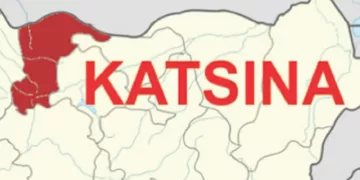The federal government had promised to provide palliatives, a measure designed to provide succour to the most vulnerable segment of the population, travailed by hardship occasioned by the removal of fuel subsidy. To the people, a government’s promise, under normal circumstances, is assumed not to be mere words used to calm frayed nerves. To all intents and purposes, such proclamation, from the President of any country, is taken as an article of faith, a covenant that creates expectations, hope, and a sense of security.
In justifying the policy of discontinuing with fuel subsidy, Nigerians were told that it cost trillions of naira yearly to implement it. The government argued that such a vast sum of money would have been better spent on public transportation, healthcare, schools, housing, and even national security. Nigerians concurred.
It must be made clear that subsidy as a policy is not evil in itself. It is one that almost every country adopts in one form or another. The problem with it in Nigeria was that it was bedeviled by corruption. A select group of individuals fed fat on the policy to the detriment of the welfare and interest of the majority.
The government, in the face of the hardship that emerged as a result of the withdrawal of the policy, promised to spend N75 billion between July 2023 and March 2024 to fund 75 enterprises with great potential to kick-start a sustainable economic growth, accelerate structural transformation and improve productivity. Another N125 billion will also be spent financing micro, small and medium-sized enterprises (MSMEs) and the informal sector as drivers of growth.
Again, N50 billion will be given to one million nano businesses on conditional grant. Another 100,000 MSMEs and start-ups will also be funded with N75 billion. This is aside the fact that President Bola Ahmed Tinubu said he had ordered 200,000 metric tonnes of grains from strategic reserves to be released to households across the 36 states and FCT at moderate prices.
The promised palliatives also include 225,000 metric tonnes of fertiliser, seedlings and other inputs to farmers who are committed to the government’s food security agenda; cultivation of 500,000 hectares of farmland and all-year-round.
It is, however, worrisome that the implementation of these promises seems to trail behind schedule. The exigency for the realisation of these palliatives, in our considered opinion, cannot be overemphasised. The current economic uncertainties are circumscribing the average Nigerians’ daily lives.
As a newspaper, we commend the federal government for announcing the release of a N180 billion palliative package to states to cushion the impact of the fuel subsidy removal. But we are disturbed at the same time about transparency of the process of distributing the palliative package to the 36 states of the federation and the Federal Capital Territory, particularly the inadequacy of the materials to meet the needs of the people.
Some states have taken custody of the funds and food items, others are yet to receive their own shares. Each state is expected to get N5 billion and 180 trucks of rice as part of measures to assuage the pains of the subsidy removal. The N5 billion is to enable each state government to procure 100,000 bags of rice, 40,000 bags of maize and fertiliser. But the question remains: how many people can these food items feed? How effective is the process of distribution?
What is more, in our candid opinion, the unclear timeline for the palliative programme is exacerbating the hardship rather than alleviating it. The process for distribution must be expedited, and transparent too. As the government makes progress with other initiatives, it is important not to lose sight of the immediate and palpable needs of the citizens.
In the meantime, we are convinced that the food security programme proposed by the government is arguably the most sustainable initiative among the palliatives. By focusing on extensive food security programmes, the government has the potential to leverage on agriculture to ensure food availability and reduce poverty rates. This initiative will not only enhance the quality of life in the short term but also guarantee a cushion in periods of future crises.
More importantly, we urge the government to mirror the resilience of the people and work assiduously to fulfill the promises made. A promise is more than a statement. It’s an act of creating trust. The times we are in need trust, hope and more than anything else, action.
The faster these palliatives move from mere promises to tangible actions, the sooner we can ignite sparks of hope among the populace and weave a stronger fabric against the cumulative weight of the economic and health crises facing the nation today. In our view, it is time for government to prioritise its tasks effectively and ensue the delivery of these essential palliatives. The time for action is now.











